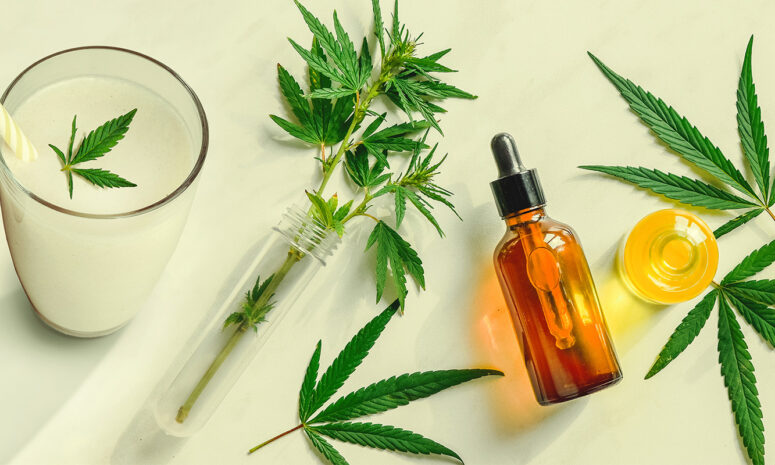
Introduction
In recent years, the United Kingdom has witnessed a remarkable surge in the popularity of CBD, also known as cannabidiol. CBD UK is a non-psychoactive compound derived from the cannabis plant that has been gaining significant attention for its potential health benefits. From wellness enthusiasts to healthcare professionals, the demand for CBD products has skyrocketed, marking a revolution in the wellness and health industry in the UK.
- The Legality of CBD in the UK
- Before exploring the rise of CBD in the UK, it is essential to understand its legal status. In 2018, the UK government legalized CBD products derived from industrial hemp containing less than 0.2% THC (tetrahydrocannabinol), the psychoactive compound in cannabis. This move opened the doors for businesses to produce and distribute CBD-infused products, including oils, capsules, creams, and even edibles. THC content: CBD products must contain less than 0.2% THC (tetrahydrocannabinol), which is the psychoactive component of cannabis that produces a “high” effect. Marketing and labeling: CBD products should not make any medical claims or be marketed as medicinal products unless they have obtained the necessary regulatory approvals. Cannabis extracts: CBD must be derived from an industrial hemp strain that is EU-approved and listed on the EU’s Novel Food Catalogue. Novel Food status: CBD products that were not significantly consumed in the EU before May 1997 are considered “novel foods.” These products need to go through a pre-market authorization process before they can be legally sold as food or food supplements.
- CBD for Wellness and Stress Relief
- One of the primary reasons for the surge in CBD’s popularity is its potential to promote overall wellness and relieve stress. Many individuals are turning to CBD as a natural alternative to traditional pharmaceuticals for managing stress and anxiety. CBD interacts with the body’s endocannabinoid system, which plays a crucial role in regulating various physiological functions, including mood and stress response. The anecdotal evidence and some preliminary studies suggest that CBD may have a positive impact on anxiety and stress-related disorders. Anxiety and Stress Reduction: CBD has been studied for its potential to reduce anxiety and stress levels. It interacts with receptors in the brain associated with mood regulation, such as serotonin receptors. This interaction may help alleviate symptoms of anxiety disorders and promote a sense of calmness.
Improved Sleep: Many people experience sleep disturbances due to stress and anxiety. CBD may aid in improving sleep quality by reducing anxiety and promoting relaxation. It could also potentially alleviate symptoms of insomnia.
Pain Relief: CBD may have analgesic properties and can be used to manage various types of pain. It interacts with receptors in the endocannabinoid system, which is involved in pain perception. CBD products, such as topicals, oils, or tinctures, may be applied directly to the affected area or ingested for systemic relief.
Inflammation Reduction: Chronic inflammation is associated with various health conditions and can contribute to stress on the body. CBD has shown potential in reducing inflammation by interacting with the body’s endocannabinoid system and other receptors involved in the immune response.
- Mood Enhancement: CBD may have mood-enhancing properties, potentially offering relief from symptoms of depression. Some studies suggest that CBD can influence serotonin receptors in the brain, which are involved in regulating mood and emotions.
- General Wellness: Many people incorporate CBD into their wellness routines as a way to support overall well-being. It’s often used alongside other lifestyle practices such as exercise, healthy eating, and stress management techniques. However, it’s important to note that CBD is not a cure-all, and individual experiences may vary.
It’s worth mentioning that the legal status of CBD products varies across countries and regions. Additionally, CBD products are not regulated uniformly, so it’s important to choose reputable brands and consult with a healthcare professional before using CBD for wellness purposes. They can provide personalized advice and help determine if CBD is suitable for you based on your specific health condition and medication regimen.
- CBD for Pain Management
- Another area where CBD has shown promise is in the management of pain. Whether it’s chronic pain, arthritis, or post-workout soreness, CBD has become a go-to option for individuals seeking relief without the potential side effects associated with traditional pain medications. CBD interacts with receptors in the body’s endocannabinoid system, potentially reducing inflammation and modulating pain perception. While more research is needed to fully understand CBD’s pain-relieving properties, its popularity among individuals seeking natural alternatives to pain management continues to grow.
Limited FDA approval: The U.S. Food and Drug Administration (FDA) has approved one CBD-based medication called Epidiolex for the treatment of rare forms of epilepsy. However, the FDA has not approved CBD for pain management specifically.
Potential mechanisms: CBD interacts with the body’s endocannabinoid system, which plays a role in regulating pain perception. It is believed that CBD may reduce pain and inflammation by influencing these receptors, among other mechanisms.
- Chronic pain: Some studies suggest that CBD may be helpful in managing chronic pain conditions, such as arthritis, fibromyalgia, and neuropathic pain. A review published in the journal Therapeutics and Clinical Risk Management in 2018 concluded that CBD showed promise in reducing pain in patients with chronic conditions.
- Inflammation: CBD’s potential anti-inflammatory properties may contribute to pain relief. By reducing inflammation, it may alleviate pain associated with conditions like rheumatoid arthritis or inflammatory bowel disease. However, more research is needed to fully understand CBD’s anti-inflammatory effects and their impact on pain management.
- Acute pain: There is limited evidence regarding CBD’s effectiveness for acute pain relief, such as postoperative pain or injury-related pain. Traditional pain management methods may still be more suitable for these situations.
- Dosage and delivery: Determining the appropriate CBD dosage can be challenging, as it varies depending on factors like the individual’s body weight, metabolism, and the severity of pain. It’s advisable to start with a low dosage and gradually increase until the desired effects are achieved. CBD is available in various forms, including oils, capsules, topicals, and edibles, allowing individuals to choose a delivery method that suits their preferences and needs.
- Safety and side effects: CBD is generally considered safe, with few severe side effects reported. However, some individuals may experience mild side effects like drowsiness, dry mouth, or changes in appetite. CBD can also interact with certain medications, so it’s important to consult with a healthcare professional before using it, especially if you’re taking other medications.
- Regulation and quality: The CBD market is still relatively unregulated, and the quality and purity of CBD products can vary. It’s crucial to choose reputable brands that provide third-party lab testing to ensure product safety and accuracy of CBD content.
While CBD holds promise as a potential option for pain management, it’s essential to approach it as a complementary therapy and not a substitute for professional medical advice. Consult with a healthcare provider who can evaluate your specific situation and provide guidance on incorporating CBD into your pain management plan.
- CBD for Sleep Improvement
In today’s fast-paced world, getting quality sleep has become increasingly challenging for many people. CBD has emerged as a potential aid for improving sleep quality and addressing sleep disorders. CBD’s interaction with the endocannabinoid system and its potential to regulate sleep patterns have garnered attention from those struggling with insomnia and other sleep-related issues. While further research is needed to establish CBD’s efficacy in this area, many individuals report positive results and are incorporating CBD into their nighttime routine.
Some studies have shown promising results regarding the use of CBD for sleep improvement. For instance, a 2019 study published in The Permanente Journal found that 67% of participants experienced improved sleep after taking 25 mg of CBD per day. Another study published in 2020 in the Journal of Clinical Psychology indicated that CBD may help reduce anxiety symptoms, which could indirectly contribute to better sleep quality.
It’s worth noting that CBD does not have psychoactive effects like its counterpart THC, which is responsible for the “high” associated with cannabis. CBD is generally considered to be safe and well-tolerated, but it can have side effects in some individuals, such as fatigue, diarrhea, and changes in appetite.
If you are considering using CBD for sleep improvement, it is advisable to consult with a healthcare professional familiar with CBD or a sleep specialist. They can provide personalized guidance based on your specific situation and help you determine the appropriate dosage and form of CBD to try. Additionally, they can take into account any potential interactions with other medications you may be taking.
It’s important to remember that CBD is not a cure for sleep disorders or a replacement for established treatments. It may offer potential benefits for some individuals, but it is not a one-size-fits-all solution. Lifestyle changes, good sleep hygiene practices, and addressing any underlying health conditions are also crucial aspects of improving sleep quality.
Conclusion
The rise of CBD in the UK represents a significant revolution in the wellness and health industry. With its potential to promote overall wellness, relieve stress, manage pain, and improve sleep quality, CBD UK has become a sought-after natural alternative for individuals looking to enhance their health and well-being. While further research is needed to fully understand the extent of CBD’s benefits, its popularity continues to soar, and it shows no signs of slowing down. As more individuals and healthcare professionals recognize its potential, CBD is likely to play an increasingly prominent role in the pursuit of better health and wellness in the UK.




